Top 8 Health Benefits of Lemongrass
Citronella, or lemongrass, is a tall, stalky shrub. It has a citrus taste and a crisp, lemony scent. It's a typical component in Thai food and a natural insect ... read more...repellant. Aromatherapy uses lemongrass essential oil to refresh the environment, relieve tension, and elevate the mood. Lemongrass is also utilized as a folk treatment to help with sleep, pain relief, and immunity. Lemongrass tea is one of the most common ways to consume it. Continue reading to find out the best health benefits of lemongrass.
-
Antioxidants, flavonoids, and phenolic substances found in lemongrass include luteolin, glycosides, quercetin, kaempferol, elemicin, catechol, chlorogenic acid, and caffeic acid. This aromatic herb's major constituent is lemonal or citral, which has antifungal and antimicrobial properties.
Lemongrass is a fragrant storehouse of critical nutrients that provides a variety of health advantages. According to the USDA FoodData Central, it contains vital vitamins and minerals such as vitamin A, B-vitamins, folate, and vitamin C, as well as potassium, magnesium, phosphorus, manganese, zinc, and iron.
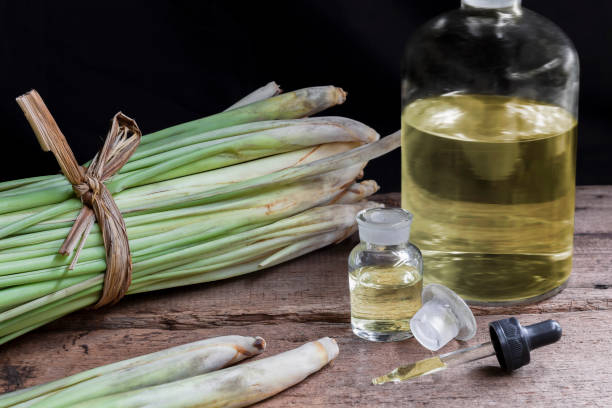
High in Nutrients 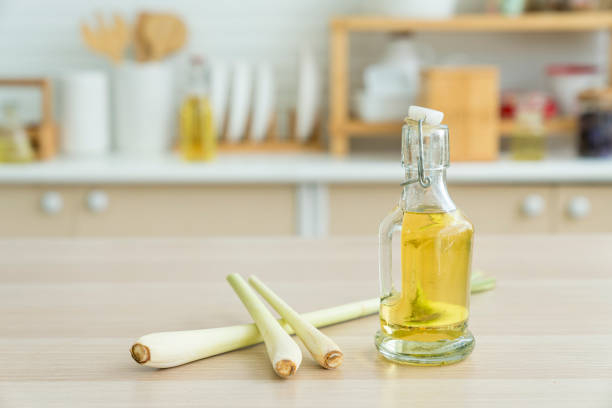
High in Nutrients -
According to a study published in the journal Food and Chemical Toxicology in 2011, the essential oils in lemongrass have anti-hyperlipidemic and anti-hypercholesterolemic effects that promote healthy cholesterol levels. One animal research found that lemongrass may help to maintain healthy triglyceride levels while also lowering LDL or bad cholesterol.
This may aid in the prevention of fat buildup in the blood vessels and the promotion of unimpeded blood flow in the arteries, hence avoiding numerous heart illnesses such as atherosclerosis. In 2011, further research on mice confirmed the long-term safety of up to 100mg of lemongrass essential oil daily. More research is needed to see if lemongrass tea has the same effects as lemongrass oil.

May Help Lower Cholesterol 
May Help Lower Cholesterol -
Lemongrass' diuretic characteristics, according to 2003 animal research, may aid in cleaning and eliminating dangerous toxic wastes from the body. Detoxification may aid in the management of different organs of the body, including the liver and kidneys, as well as perhaps lowering uric acid levels. The herb's putative diuretic impact aids in increasing the quantity and frequency of urine, which aids in digestive health and detoxification.
Lemongrass essential oil possesses anti-biofilm potential and is useful against Staphylococcus aureus infection, according to research published in the Journal of Applied Microbiology. It includes phenols and essential oil, which may interfere with the growth of diseases and germs and aid in the production of biofilms.
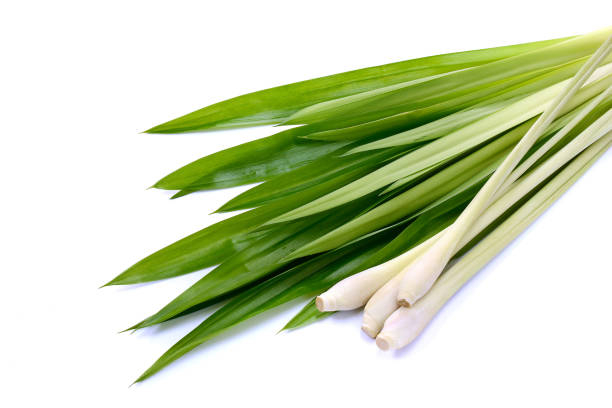
May Detoxify the Body and Fight Staphylococcus Aureus 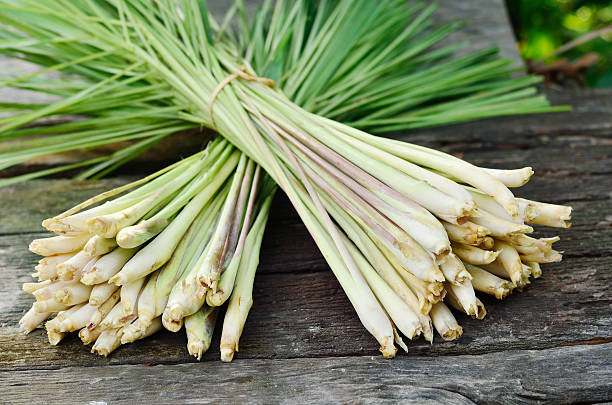
May Detoxify the Body and Fight Staphylococcus Aureus -
Lemongrass essential oil possesses anti-microbial and anti-bacterial characteristics that may aid in the treatment of diseases caused by pathogens such as Helicobacter pylori and Escherichia coli. It aids in the reduction of inflammation and gastrointestinal diseases; it may be good to ingest if you suffer from gastric ulcers, constipation, ulcerative colitis, diarrhea, nausea, and stomach discomfort.
Lemongrass is commonly utilized in Ayurvedic medicine for its anti-cough and anti-cold properties. Along with other therapeutic components, vitamin C in it may help relieve nasal congestion, flu, and other respiratory illnesses such as bronchial asthma.
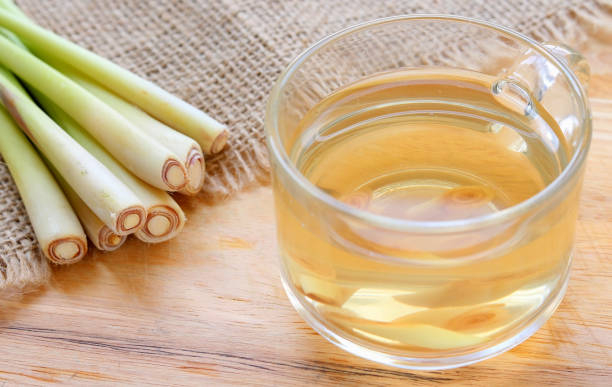
May Aid in Relieving Stomach Disorders and Act as Remedy for Respiratory Disorders 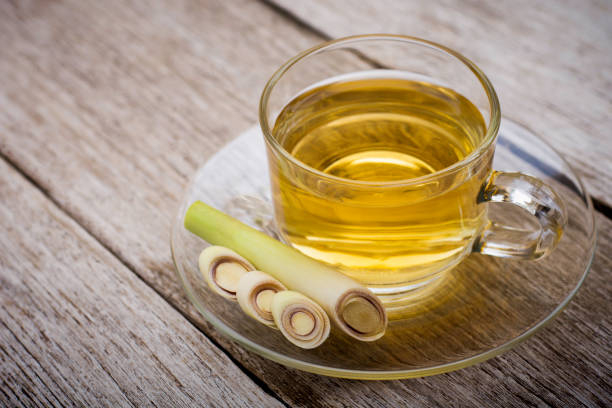
May Aid in Relieving Stomach Disorders and Act as Remedy for Respiratory Disorders -
Because of its antibacterial and anti-fungal qualities, lemongrass serves as an antiseptic and is beneficial in treating diseases such as ringworm, sores, Athlete's Foot, scabies, and urinary tract infections (UTI). According to research, the plant can treat dermatological diseases such as yeast infections by suppressing pathogen development. Another research supports the usefulness of lemongrass oil over thyme, patchouli, and cedarwood oil in the treatment of different disorders such as oral or vaginal candidiasis.
Lemongrass is a febrifuge and is also known as the "fever herb" owing to its anti-fever properties. In Ayurvedic medicine, the potential antipyretic and diaphoretic action is often utilized to treat fever by causing perspiration.

May Help Treat Infections and Reduce Fever 
May Help Treat Infections and Reduce Fever -
Lemongrass and its derivatives, such as oil, are believed to relieve headaches and body pains. According to a 2018 study, not only is herbal oil beneficial against many types of muscular pain and body soreness, but it is also a safer alternative to pharmaceutical medications. Another study found that lemongrass essential oil can help with rheumatism, muscular spasms, and cramps.
Lemongrass has been demonstrated to be effective in the treatment of type 2 diabetes. According to animal research published in the Indian Journal of Pharmacology in 2011, the citral found in the aromatic plant may help maintain optimal insulin levels and increase glucose tolerance in the body. More study on the human population, however, is required to fully comprehend the impacts.

May Reduce Aches and Aid in Managing Type-2 Diabetes 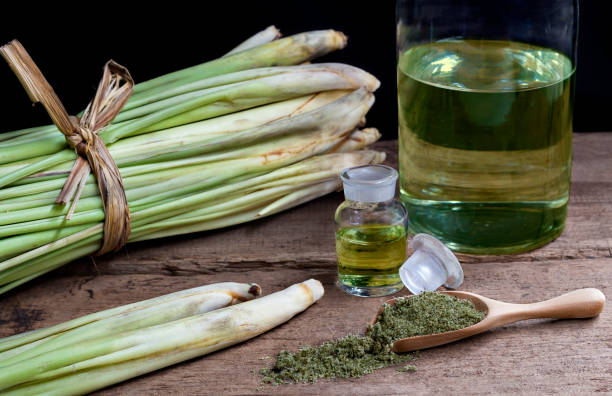
May Reduce Aches and Aid in Managing Type-2 Diabetes -
Lemongrass extracts may have an anti-inflammatory impact on cytokines, which are signaling chemicals that allow cells to interact and respond to the body. According to research, the extract has anti-inflammatory properties, and its ingredient, citral, may be responsible for its inhibitory influence on cytokine production.
Lemongrass has long been valued as a skin tonic, and its astringent and antibacterial properties make it a good cleaner for oily or acne-prone skin. It can assist to strengthen the skin tissues and tone them while also sterilizing the pores. Lemongrass products should be used with caution, since the undiluted application may cause skin irritation in some circumstances.
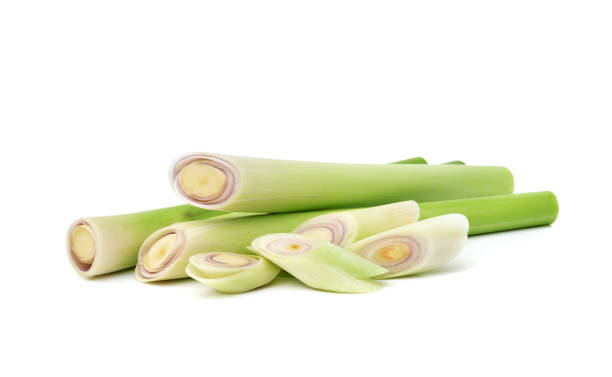
May Boost Immunity and Improve Skin Care 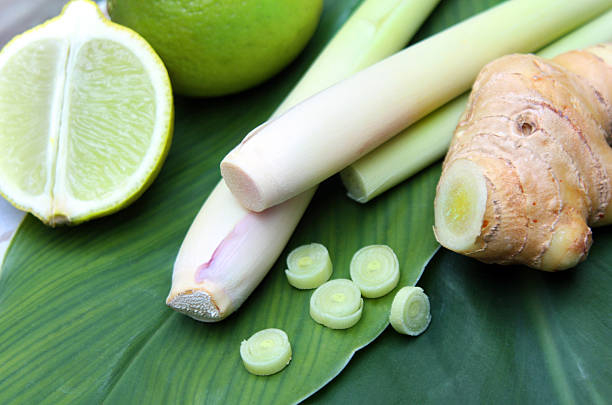
May Boost Immunity and Improve Skin Care -
Lemongrass contains essential oils and chemicals that are good for the body, including neroli, citronellol, myrcene, dipentene, geraniol, and methyl heptenone. Because of its therapeutic benefits, which aid in bodily revitalization, the oil is often utilized in aromatherapy. The essential oil's cooling impact is useful to the body during hot weather and encourages the restoration of both the mind and the spirit. This oil has natural astringent and toning properties that aid in stimulating blood circulation and toning the dermal tissues. It is used in therapeutic baths to relax the body and relieve tension, weariness, and anxiety.
Lemongrass is used to make deodorants because of its cleaning and antibacterial characteristics. Deodorants aid in the control of unpleasant body odor as well as the prevention of fungal and bacterial infections. It may also be used to sanitize painful and stinky feet in footbaths.

Can Be Used in Aromatherapy 
Can Be Used in Aromatherapy





























